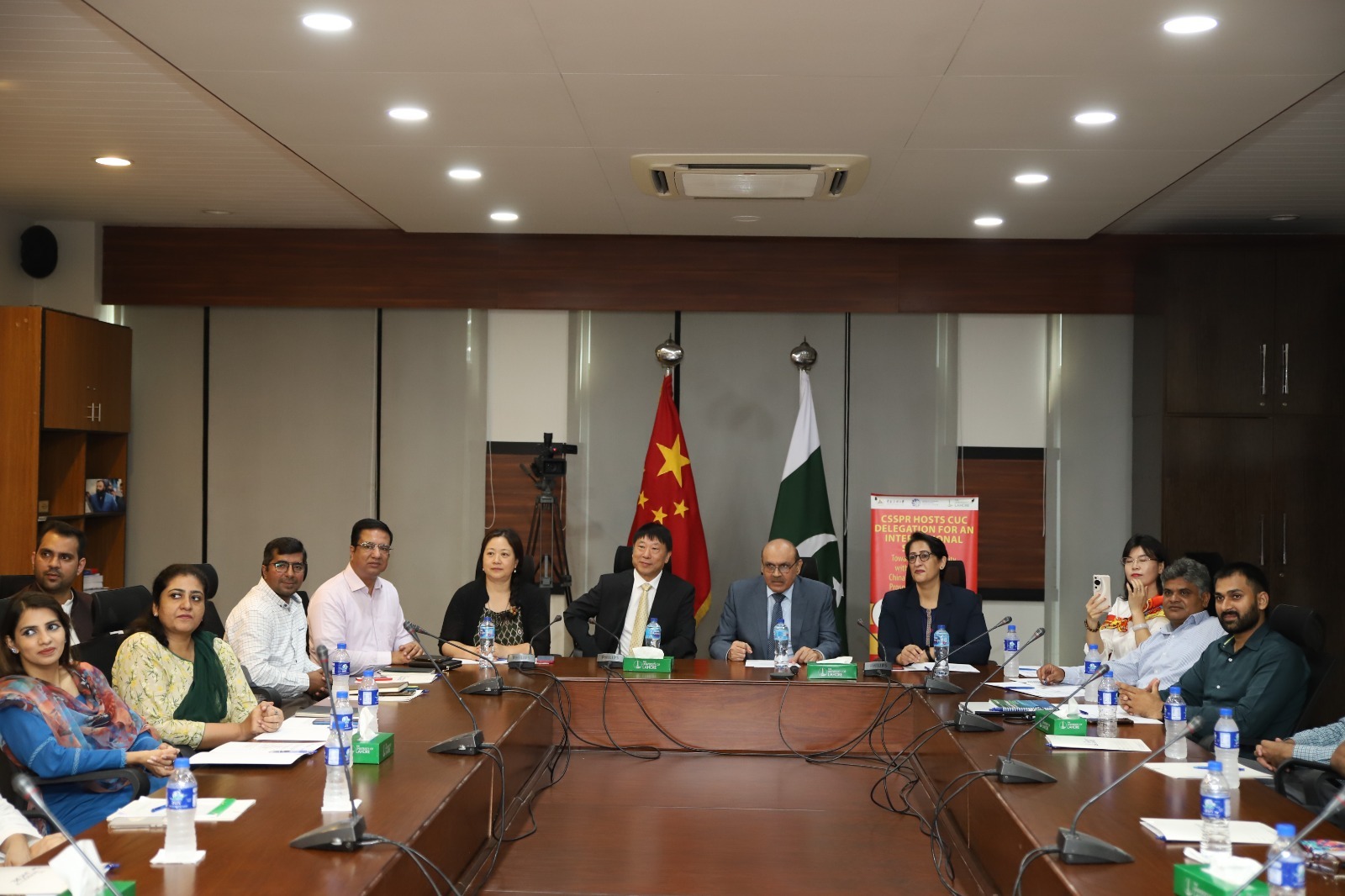Seminar on "China’s idea and concept of development, peace, and prosperity" organized by Centre for Security, Strategy and Policy Research (CSSPR), University of Lahore, Lahore

Experts and scholars on China shed light on China’s idea and concept of development, peace, and prosperity, as enshrined in that country’s President's Vision of a Community with a Shared Future. They argued that all this centers on citizens, mutual gains, and creating interdependencies. This was said by a Chinese delegation from the Institute for a Community With, Shared Future (ICSF), Communication University of China (CUC), in a seminar organized by the Center for Security, Strategy and Policy Research (CSSPR), The University of Lahore. Aimed at understanding President Xi Jinping's Vision of a Community with a Shared Future a decade after it was unveiled, the seminar featured scholars from CUC. They spoke about the idea and concept behind the Vision, arguing that the said Vision prioritizes inclusive human welfare, development, and security through investments and smart interventions towards enhancing integration, connectivity, and, consequently, interdependencies.
The seminar was opened for discussion by the Rector, University of Lahore, Prof. Dr. Muhammad Ashraf, who appreciated China's remarkable economic transformation from the 1970s onwards. He added that China is a role model of and for peaceful development, one that, instead of creating security dilemmas, has facilitated in establishing pathways of mutual development. Thereafter, Executive Director, Pakistan Research Center for a Community With Shared Future (PRCCSF), Khalid Taimur Akram, who facilitated the delegation’s academic visit to Pakistan, shared his thoughts on the Vision and its implications for the region. He said imbibing the spirit of this Vision could, among other things, help connect Central Asia to the world and make it one of the most strategically and economically lucrative sub-regions something which will be a geoeconomic jackpot for Pakistan. In his remarks , Prof. Li Huailiang, Dean, ICSF, CUC, stressed the need for creating interdependence and interconnectedness ,with a view to enhancing cooperation across regions. He argued that a Community with a Shared Future is one where the interests of all stakeholders are acknowledged and protected, not to mention the need for establishing harmony, peace, and symbiosis. He added that such a community can only be built if everyone rejects hegemonic and hierarchical structures, and commit to working towards establishing win-win partnerships.
Prof. Zhang Yanqiu, Deputy Dean, ICSF, delved into China’s concept of democracy, arguing that it is one that considers it as a process through which people are made more cognizant, part of consultations, and looked after well as stakeholders. This idea, he contended, was a critical plank of China’s edifice of a Community with a Shared Future.
Dr. Ge Yanling, Section Chief of the Office, ICSF, CUC, took this point forward, and talked about women empowerment as a critical catalyst of progress and development. Detailing China’s multi-pronged framework to empower women, Dr. Yanling stressed how China has been able to turn them into not only veritable vehicles of economic growth but also symbols of China’s strength. That said, the need for ensuring more inclusivity was highlighted, with Dr.Yangling convincingly arguing that it is a process that must continue.
The participants were of the opinion that Xi’s Vision provides a roadmap to countries like Pakistan, adding that development and growth cannot happen in silos ,or the expense of the other. Therefore, according to them, Pakistan can grow if the region becomes of zone of connectivity and cooperation. Director, CSSPR, Dr.Rabia Akhtar, in her closing remarks, urged the International community, including the burgeoning group of Western experts on China, to see China from varied lenses, adding that refusing to engage with what the Chinese are thinking and writing won’t be good news for global peace and stability, not least because positions will harden. She also reminded the audience that China favours playing mediatory roles to ensure that its periphery and beyond have the greatest chance of succeeding as frontline economic and political actors. At the end, she, on behalf of The University of Lahore, committed to continuing research work on Sino-Pak relations, regional connectivity, and peace-building.









